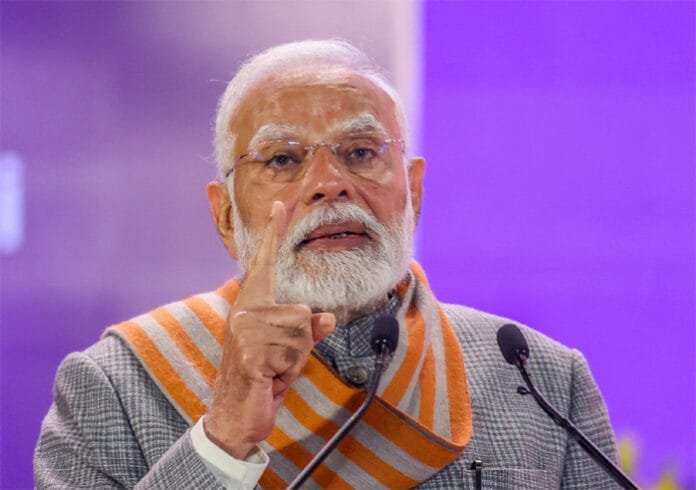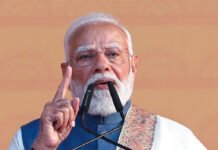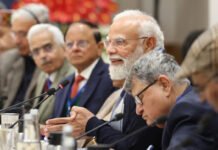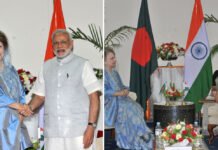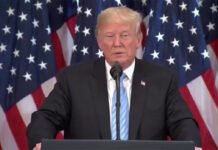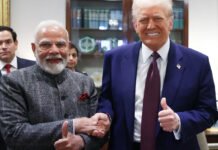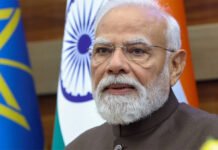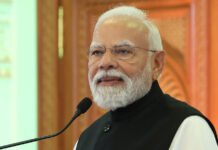In the wake of rising trade tensions between India and the United States, Prime Minister Narendra Modi has delivered a powerful message reinforcing India’s unwavering commitment to its agriculture sector. At the inaugural session of a global conference honoring Dr. M.S. Swaminathan, the visionary behind India’s Green Revolution, PM Modi emphasized that India will not compromise on the rights and livelihoods of its farmers, fishermen, and dairy workers, even if it requires a personal sacrifice.
US Tariff Hike Sparks Diplomatic Flashpoint
The United States recently imposed a 50% tariff on Indian agricultural exports, escalating an already strained trade relationship. The new tariffs include an initial 25% hike effective from August 7, followed by an additional 25% slated for August 27, targeting key exports such as rice, spices, dairy products, and seafood.
These protectionist measures have triggered sharp criticism from India, with officials labeling the tariffs as “unfair” and “disproportionately harmful” to the backbone of India’s rural economy — its farmers. In response, PM Modi’s declaration sends an unmistakable signal: India will defend its agrarian community at all costs.
“Interests of Farmers Are Paramount” – A Message to the World
Speaking at the three-day Global Agricultural Science Conference, PM Modi stated unequivocally:
“The interest of our farmers is the top priority for us. India will never compromise with the interests of its farmers, cattle rearers, and fishermen. I know that I will have to pay a huge price personally. But I am ready for it.”
This declaration comes not only as a reaffirmation of his government’s stance but also as a strategic message to global trade partners — India’s domestic interests will not be bargained away under international pressure.
India’s Agricultural Sector: A Critical Economic Engine
India’s agriculture sector supports over 60% of its population, making it a cornerstone of the national economy. With more than 100 million smallholder farmers, livestock keepers, and coastal fishermen reliant on fair trade and market access, any disruption in exports can have cascading effects on rural employment, food prices, and economic stability.
The US tariffs, particularly on dairy and rice — two of India’s biggest export categories — threaten to erode farmers’ earnings, derail supply chains, and hurt allied sectors like logistics, packaging, and processing.
Government’s Bold Diplomatic and Policy Response
India has conveyed its strong objections to the Office of the United States Trade Representative (USTR) and is actively exploring retaliatory measures, including:
Tariff countermeasures on American goods such as almonds, apples, and dairy products.
Accelerated bilateral dialogue to resolve trade disputes through the World Trade Organization (WTO) mechanisms.
Strategic trade alliances with regions such as Southeast Asia, Africa, and Latin America to diversify agricultural export markets.
By taking this stand, India not only seeks to protect its current markets but also strengthen its negotiating leverage in upcoming bilateral trade agreements.
Political Significance Ahead of 2025 State and National Elections
PM Modi’s bold statement also carries deep domestic political implications. With key state elections in Punjab, Maharashtra, and Uttar Pradesh on the horizon — all of which have substantial agrarian populations — the Prime Minister’s vocal defense of farmers’ interests reaffirms the BJP’s rural voter base.
It reinforces the narrative that the current administration is willing to defy international powers if needed, to protect India’s self-reliance and sovereignty, especially in critical sectors like agriculture.
Legacy of Dr. M.S. Swaminathan: A Fitting Backdrop
The event where PM Modi made these remarks was organized to commemorate Dr. M.S. Swaminathan’s birth centenary, whose pioneering work ushered in the Green Revolution and transformed India from a food-deficient country into a food-secure nation.
PM Modi’s remarks were deeply symbolic, connecting Swaminathan’s legacy with today’s need to resist economic pressure and safeguard the dignity of those who feed the nation.
Rural India Reacts: Voices of Endorsement and Determination
Farmers’ associations across the country have welcomed PM Modi’s statement, calling it a morale booster during times of economic uncertainty.
Ramesh Tikait, spokesperson for the Bharatiya Kisan Union (BKU), said:
“This is what we wanted to hear — that the government stands with us. We urge the Centre to keep the pressure on the US and ensure our produce is not undervalued globally.”
Meanwhile, leaders of dairy cooperatives in Gujarat and fishermen unions in Tamil Nadu praised the PM for acknowledging their unique struggles amidst tightening export rules and declining international prices.
Economic Impact and the Road Ahead
India exported over $43 billion worth of agricultural goods in 2024, with the US being a top-5 destination. Analysts warn that a prolonged tariff war could reduce export revenues by up to $5 billion annually, unless new trade partners are secured.
However, with policy interventions such as:
The Agri Export Policy 2.0
Investment in cold storage and supply chain infrastructure
Promotion of organic and value-added exports
India is gearing up to not just withstand the pressure but emerge more resilient and diversified in its global trade approach.
Conclusion: A New Era of Assertive Trade Policy
Prime Minister Narendra Modi’s vow to protect farmers — even at personal cost — marks a new era of assertive and unapologetic trade diplomacy. In a world where economic power often dictates the rules, India is signaling that its food producers will not be sacrificed at the altar of global appeasement.
The message is clear: India will protect its farmers — with policy, with diplomacy, and if needed, with resistance.
As the trade tensions evolve, all eyes are on how India balances economic pragmatism with domestic interests, and whether this bold approach will serve as a template for future trade negotiations with other global powers.

